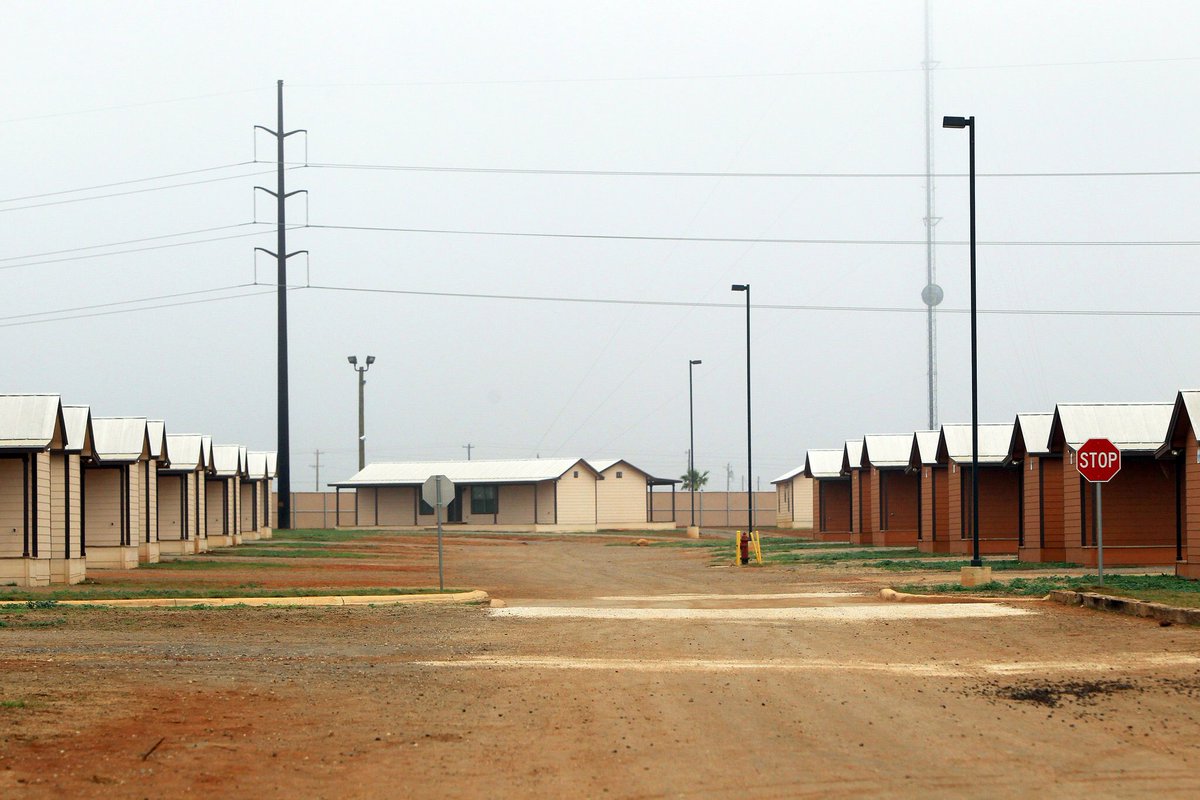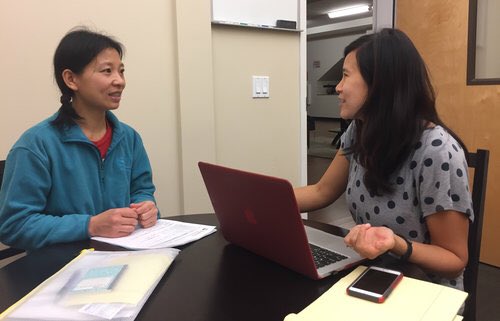UPDATES from Lawyers for Good Government
➡️ON THE GROUND IN TEXAS⬅️
to help immigrants through
♦️Project Corazon♦️
and the Lawyers for Good Government Foundation.
Please donate! Any assistance is greatly appreciated.
<Thread>
facebook.com/story.php?stor…
➡️ON THE GROUND IN TEXAS⬅️
to help immigrants through
♦️Project Corazon♦️
and the Lawyers for Good Government Foundation.
Please donate! Any assistance is greatly appreciated.
<Thread>
facebook.com/story.php?stor…
While most of us spent the 4th of July with our families, intrepid Lawyers for Good Government volunteer attorney Veronica Walther was in Texas helping women apply for asylum.
Here is part of her harrowing report /2
Here is part of her harrowing report /2
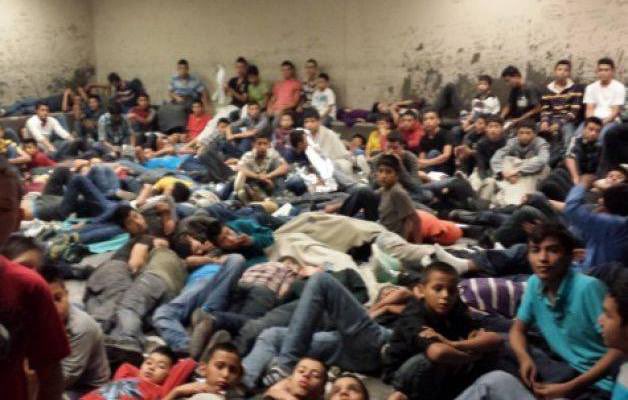
I spent all of this Independence Day at #KarnesResidentialCenter Yes, it's a holiday but these women and children do not get a day off from detention so we do not take a day off from helping. There is more than enough work to do. /3
The kids were in the visiting room all day. The women were more relaxed and open. I only realized later, it was because their kids were within reach all day. There is a constant undercurrent of fear that kids will be separated. Rumors run rampant; we do our best to dispel them./4 
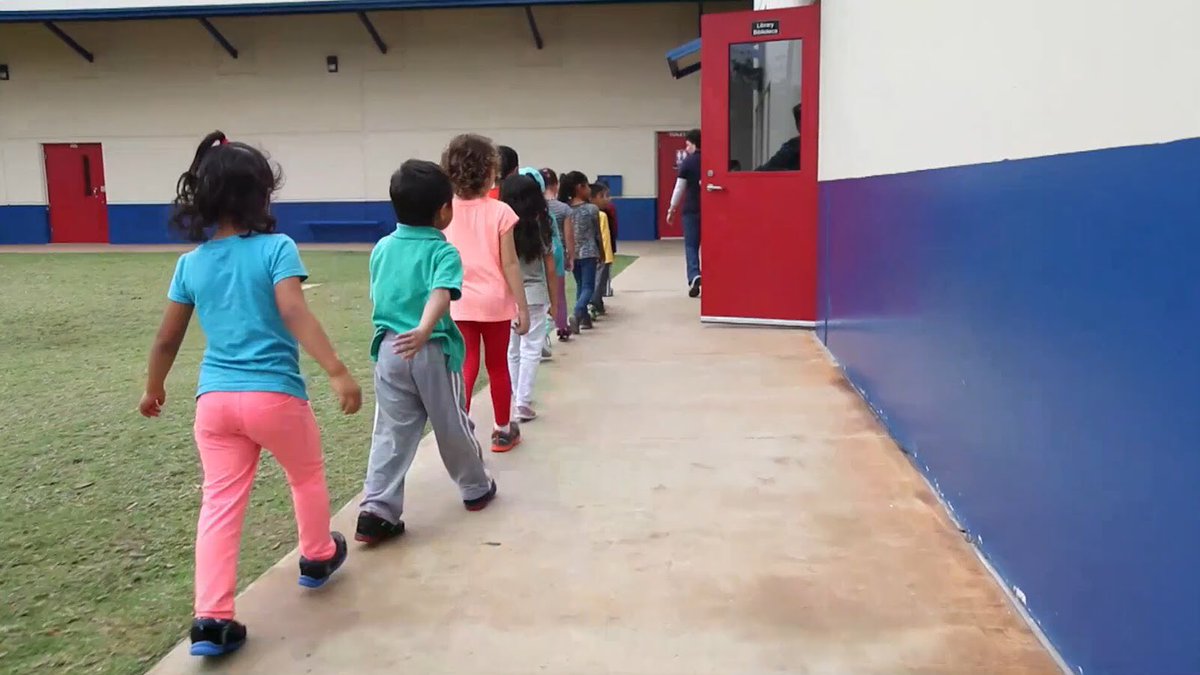
The process at the border depends on how and where people arrive. Some cross the desert, some float or even walk across the river, some cross at a bridge or entry point. You are allowed to seek asylum regardless of how or where you entered the US./5
At some places, immigrants have to wait for days. At others, they come right through. Once you arrive and turn yourself in or are caught, you are in expedited removal proceedings. Basically, unless you have a way to stay in the country (seeking asylum), you will be deported. /6 
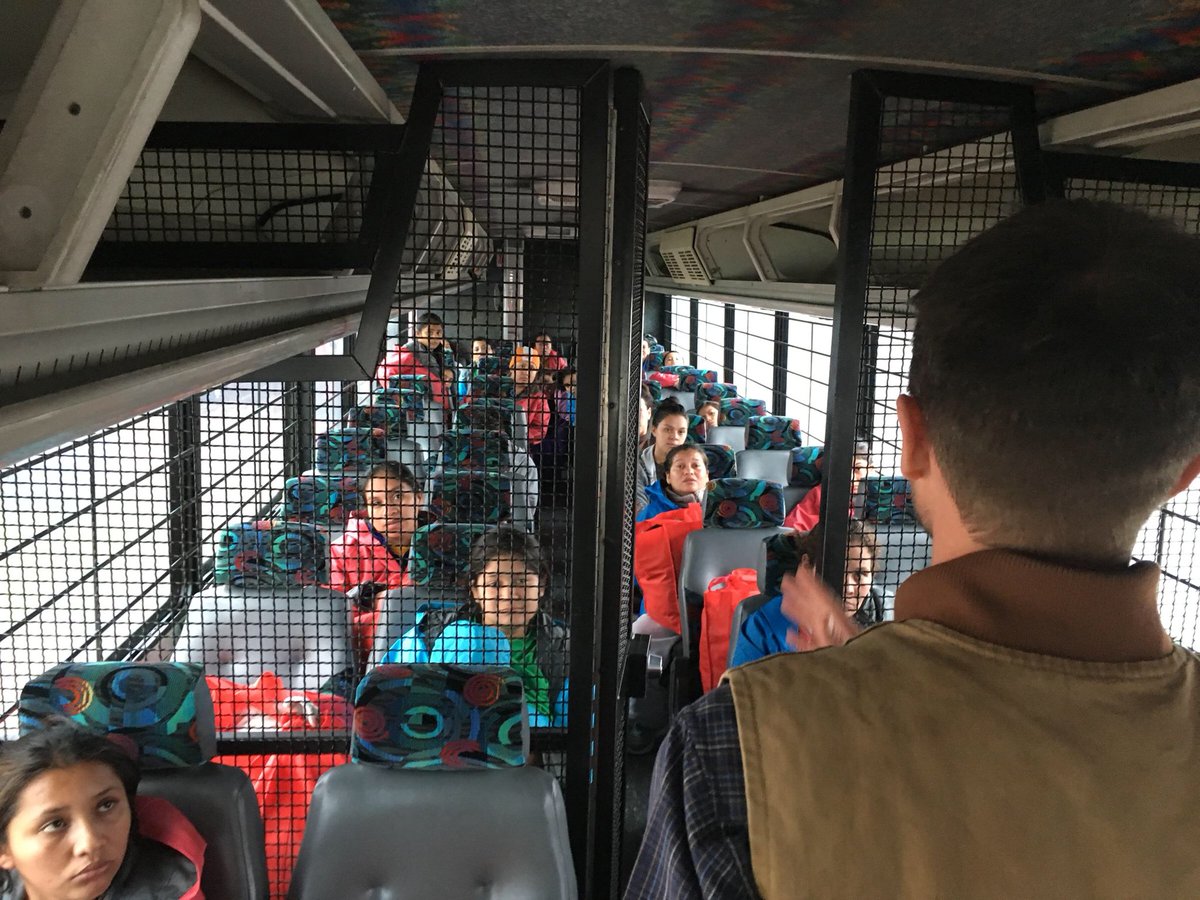
If you claim that you are afraid to return to home or that you are seeking asylum, you will be sent to a processing center. There, you will receive a medical exam, and you may get vaccinations. You are then sent to a center commonly known as the ‘hielera’, the freezer. /7
The hielera is basically a large, windowless, cinder block area. People are separated by age/family/sex, often divided by chain-link type fences. You do not have a mattress nor a bench available, because these are holding cells and not considered residential facilities. /8 

You sit and sleep on the floor. Your only source of comfort is a mylar blanket. These facilities are called hieleras for an obvious reason: they are COLD. Lights are on around the clock. This is especially disorienting when there are no windows and no semblance of normalcy./9 

Think of being a child, fresh from a walk across the harsh, hot desert, likely sunburnt. You are now in a cold room with this weird, slick, warm/cold blanket that doesn’t even help you shield your eyes from the glaring fluorescent lights. /10 

And you’re hungry. Everyone tells me food is insufficient at the hielera, and foreign. Water is limited and tastes strongly of bleach, sometimes burning the women’s throats. Kids can get juice but don’t want to eat. Parents can’t stomach the cold soups and frozen sandwiches. /11
You are not allowed to shower or brush your teeth. There is minimal privacy when using the bathroom - you share an exposed sink and toilet, which may have piles of used sanitary napkins and toilet paper next to it. /12 
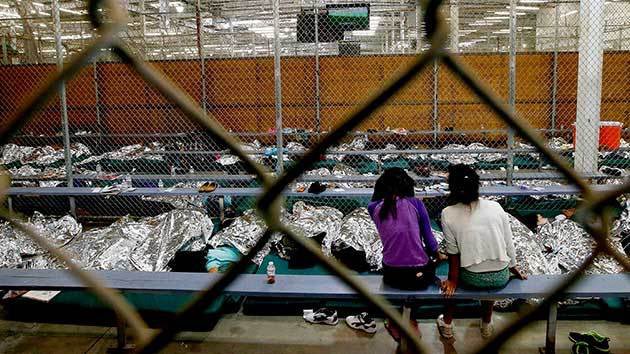
If you are menstruating, sanitary pads are limited - without being allowed to shower, your soiled clothes start to reek. They are often crowded and occasionally there may not be enough room to lay down. Medical care is extremely limited. Guards are often the worst here. /13
You shouldn’t be in the hielera longer than 72 hours but most women I’ve met spent 3-7 days there. Then, you may be told that you’ll be let out if you just sign this paper - BUT you may not be told that paper is accepting your deportation. /14 

From the hielera, many women and families are sent to a ‘perrera’, the dog pound/kennel. The perrera is similar to the hielera but slightly better. At the perrera the lights are still on and it’s still cold, but maybe not quite as cold. /15
It is called the dog kennel because rooms are subdivided into little fenced cages. Here, you have a bench to sit on and may have a mattress. You have a bit more privacy for the restroom. Food, water, and medical care are still limited but more accessible than at the hielera. /16 
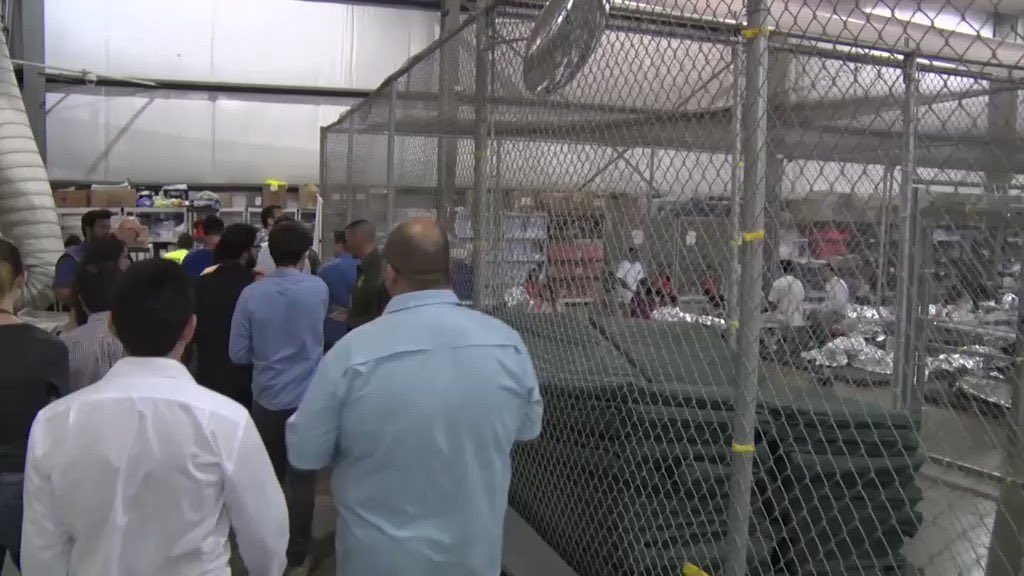
You likely are in your same clothes and cannot shower or brush your teeth yet, but at least you are slightly more comfortable. For the women I’ve spoken to, they are mostly happy to be safe from the threats and risks they left behind, and of course to be with their children. /17
Next, women and children are sent to one of 3 family detention centers. I am volunteering at one of them, #KarnesResidentialCenter. By the time you get here, you are relieved to be in a place with beds and other facilities where you can provide some normalcy to your children. /18 
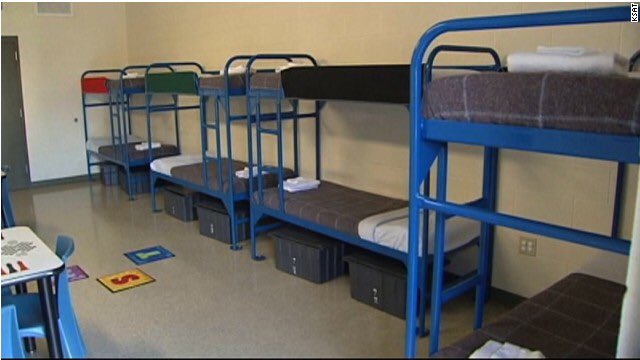
The water still tastes bad and the food still isn’t good, but there is enough. You are given new clothes (t-shirts, jeans, and slip-on shoes) and you are allowed to shower, brush your teeth, do laundry. You are safe for now, and you are with your children. /19
If you have trouble understanding how difficult these families’ lives were in their home countries, consider this: Not one single woman or child any of us has met on this trip has expressed any regret about making the treacherous journey north. /20
Some feel peace for the first time in years. They are grateful for what little they have. Because home is so much worse. For these women and children, home is the mouth of a shark. They would never leave otherwise. /21
#L4GG #RAICES #Karnes
#L4GG #RAICES #Karnes
Thank you, Veronica. I pray that the women you are helping appreciate what you are doing.
I KNOW that those of us at Lawyers for Good Government do.
Never give up. Never give in.
Always #resist
#LawyersResist @lawyers4goodgov
lawyersforgoodgovernment.org/project-corazon
I KNOW that those of us at Lawyers for Good Government do.
Never give up. Never give in.
Always #resist
#LawyersResist @lawyers4goodgov
lawyersforgoodgovernment.org/project-corazon
• • •
Missing some Tweet in this thread? You can try to
force a refresh






